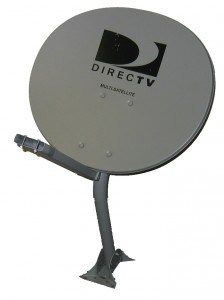Frontier FiOS is the fiber-to-home network that gets no respect, at least from the company that now runs it.
What Verizon considers its crown jewel, Frontier Communications considers an afterthought. Since buying up several million landlines from Verizon, Frontier has reluctantly adopted the fiber-to-the-home service already up and running in a handful of areas Verizon sold off.
Frontier CEO Maggie Wilderotter said Frontier would not increase pricing on its services, in fact stating they had not had a price increase in several years. But just months after winning approval of the deal with Verizon, Frontier stunned customers and regulators with one of the largest rate increases ever seen in the cable television industry: a $30 monthly increase for basic cable.
Understandably, angry customers have been calling Frontier in droves demanding an explanation.
Stop the Cap! reader Betsy was floored when a Frontier representative actually suggested to her its FiOS network wasn’t worth the trouble, and the representative was telling all of the customers calling they should “upgrade” to satellite TV instead.
“How do you even respond to that? I thought I heard her wrong — I had the speakerphone on, but after the Frontier rep said it, my 87 year old mother who was listening hollered ‘that’s a bunch of bull****’ from the other room,'” Betsy shares.
“My mother almost never swears,” Betsy tells Stop the Cap! “But she was living with us when our family endured satellite’s rain fade, the neighbor’s trees, the picture freezes, and the equipment issues for almost ten years — why would we go back to that?”
In fact, it was Verizon’s FiOS network which attracted the Washington State family to take the satellite dish off the roof and toss it. So it came as quite a shock to have a Frontier representative try and get her to rip a state of the art fiber network out to go back to DirecTV.
“Does anyone at this company have a clue what they are doing? Using their logic, we should go back to dial or hand crank telephones,” Betsy concludes.
We wondered if this was a fluke, but then we found Frontier telling customers nearly the same thing in Ft. Wayne, Ind.
The Journal-Gazette reports Frontier’s rate hike in the Pacific Northwest foreshadowed similar rate hikes likely in the midwestern city that is Frontier’s second largest market, behind Rochester, N.Y.
Frontier Communications FiOS cable customers could be facing a monthly increase of $12 to $30 in coming weeks.
Many of the affected subscribers have a $99 bundle for monthly TV, telephone and Internet services. As an alternative, Frontier will offer DirecTV satellite service free for the rest of the year for customers paying for telephone and Internet, a spokesman said Wednesday.
“We will be making more information available by Tuesday of next week,” said Matthew Kelley, adding that existing customer contracts will be honored.
“With DirecTV, it really is a chance to get three services for the price of two. The channel lineups are pretty comparable.”
DirecTV offers more than 200 channels, Kelley said.
“Don’t sign me up,” Betsy writes when we showed her the Journal article. “Channel lineups don’t mean much when you can’t watch them.”
Betsy’s satellite dish took a beating not only from the weather and efforts to find a clear view to the sky, but also from some birds advertising for a mate.
“The woodpeckers just loved to attack the dish — the jack-hammering sound could be heard all over the neighborhood when they got going,” she said.
Frontier’s Kelley admitted the company is small potatoes in the cable world, and simply can’t compete for good programming prices.
But even those of us at Stop the Cap! know that smaller players need not negotiate programming contracts themselves — they can join one of several groups that pool smaller providers together to grab substantial volume discounts. Municipal players manage to find reasonable cable programming prices, but a multi-state corporate player like Frontier apparently cannot.
Bruce Getts, business manager for the International Brotherhood of Electrical Workers Local 723, shrugged off Frontier’s FiOS failures.
Getts, whose union represents 700 installers, repair technicians, customer service representatives and dispatchers at Frontier told the newspaper more people are going online to watch TV anyway, so the impact of the price hike might well become moot.
Unfortunately, Frontier is the same company testing an Internet Overcharging scheme in the Sacramento area that makes online viewing an expensive proposition, even more expensive than Frontier’s FiOS rate hikes.
“I think people will rue the day they let these bozos take over our phone service,” Betsy says. “It looks like our family has a reason to cancel service with Frontier and head to cable.”


 Subscribe
Subscribe







